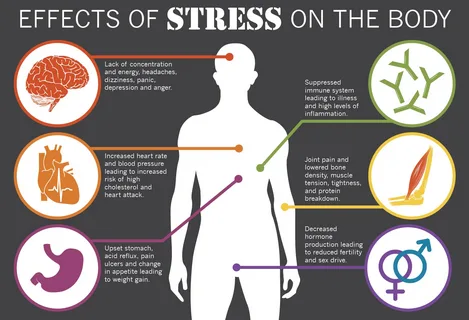Hair thinning at the temples? You’re not alone. Many men in Singapore start noticing changes in their hairline or increased hair shedding, often without knowing the real cause. While genetics plays a role, stress and hormones are two major factors behind male hair loss. The good news? Effective male hair loss treatment in Singapore is available, and understanding the root causes can help you take the right steps toward recovery.
Whether you’re dealing with chronic stress, hormonal imbalances, or both, this guide will explore how they impact your hair and what can be done. If you’re searching for a reliable male hair loss treatment in Singapore, read the following points.
Understanding the Hair Growth Cycle
Before diving into causes, it’s essential to understand how hair grows. The hair growth cycle consists of three phases:
- Anagen (growth phase): Lasts several years, where hair actively grows.
- Catagen (transition phase): Lasts a few weeks; hair stops growing but remains in place.
- Telogen (resting/shedding phase): Lasts a few months; hair falls out to make way for new growth.
Stress and hormonal disruptions can shorten the anagen phase and push more hairs prematurely into the telogen phase, leading to noticeable shedding and thinning.
The Role of Stress in Male Hair Loss
Acute vs. Chronic Stress
Acute stress, like a sudden shock, illness, or traumatic event, can trigger telogen effluvium, where a large number of hairs enter the shedding phase all at once. This can result in clumps of hair falling out during washing or combing.
Chronic stress, on the other hand, slowly interferes with the hair growth cycle, shortening the growth phase over time. This leads to gradual thinning, especially at the temples and crown.
Stress-Induced Inflammation and Cortisol
When stress levels rise, so does the hormone cortisol. High cortisol contributes to scalp inflammation, reduced blood flow, and limited delivery of nutrients to hair follicles. This environment weakens the follicles and slows down hair production.
Common Stress Triggers in Singaporean Men
Many men in Singapore face stress from demanding careers, long hours, and an always-on digital lifestyle. Sleep deprivation, lack of downtime, and constant pressure to perform can silently chip away at your hair health.
Hormonal Imbalances That Affect Hair in Men
DHT and Male Pattern Baldness
The most common form of male hair loss is androgenetic alopecia, also known as male pattern baldness. It’s primarily driven by dihydrotestosterone (DHT), a derivative of testosterone.
DHT binds to receptors in hair follicles and causes them to shrink. Over time, the follicles produce thinner, weaker hair until they eventually stop producing hair altogether.
Testosterone Fluctuations and Ageing
As men age, testosterone levels fluctuate. Around the 30s or 40s, hormonal changes can trigger thinning, even in men who previously had thick hair. These shifts may not be drastic but can significantly affect the hair growth cycle.
Medical Conditions Related to Hormones
Hormonal imbalances caused by thyroid disorders, pituitary gland issues, or conditions like hypogonadism can also lead to hair thinning. These require medical diagnosis and should not be overlooked.
Identifying the Signs of Hormonal or Stress-Related Hair Loss
Hair loss from stress or hormones often presents as:
- Gradual thinning around the temples or crown
- A receding hairline
- Sudden, excessive shedding in the shower or on your pillow
- Noticeable thinning that doesn’t grow back
If you’re seeing these signs consistently, it could indicate an underlying imbalance that needs attention.
Effective Hair Loss Treatments in Singapore for Men
The earlier you act, the better your chances of slowing or even reversing hair loss. Here are some popular male hair loss treatments in Singapore
- Topical solutions: Minoxidil increases blood flow to hair follicles and stimulates growth.
- Oral medications: Finasteride and other DHT blockers reduce hormone-related follicle shrinkage.
- Platelet-Rich Plasma (PRP) Therapy: Uses your body’s plasma to rejuvenate hair follicles.
- Hair transplant surgery: Restores hair in balding areas by relocating healthy follicles.
- Laser therapy: Low-level lasers stimulate hair growth at the cellular level.
- TCM-based treatments: Traditional Chinese Medicine offers herbal remedies and acupuncture to address hair loss holistically.
Most clinics in Singapore offer a combination of these based on your hair condition. A professional scalp analysis and hormonal checkup can help tailor the right treatment plan.
Lifestyle Changes That Support Hair Recovery
Treatment works best when paired with healthy habits. Here’s how to support hair regrowth naturally:
- Manage stress: Try breathing exercises, yoga, meditation, or therapy to reduce cortisol levels.
- Improve your diet: Eat foods rich in zinc, omega-3 fatty acids, iron, and protein to support hormone and hair health.
- Adopt a scalp care routine: Use gentle shampoos, avoid over-washing, and massage the scalp to boost circulation.
These steps may seem small, but they create a foundation for lasting hair recovery.
When to Seek Professional Help
If you notice rapid hair thinning, bald spots, or little to no regrowth over several months, it’s time to consult a hair loss expert.
During a consultation, professionals will assess your scalp, review your medical history, and possibly conduct hormone tests. This allows them to customise a plan that fits your unique needs and goals.
Reliable hair loss treatment clinics will offer both medical and natural solutions, along with regular progress tracking.
Discover Proven Hair Loss Solutions That Work
Stress and hormones play a significant role in men’s hair loss. While the effects may seem gradual or sudden, they are very real and very common. The good news? You don’t have to go through it alone.
With early intervention, the right treatment, and healthy lifestyle changes, hair loss can be slowed, managed, or even reversed.
Looking for a reliable male hair loss treatment in Singapore? Book a consultation today with Beijing 101 and take the first step toward hair recovery and renewed confidence.

